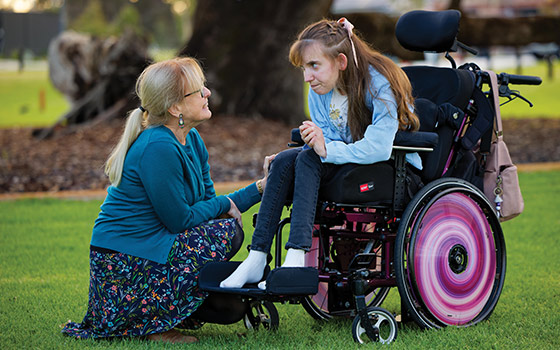Search

The Quality of Life Inventory - Disability
Research
A systematic review of prevention interventions to reduce prenatal alcohol exposure and fetal alcohol spectrum disorder in Indigenous communitiesLiz Martyn Milne Symons MPH PhD B.A. (Hons) PhD. Honorary Emeritus Fellow Honorary Research Associate 08 6319 1672 martyn.symons@thekids.org.au
Research
Determinants of prenatal alcohol exposure among Aboriginal women in the Pilbara: Developing a statistically validated model of prenatal alcohol consumption for evidence based intervention developmentInvestigators: Dave Tucker (PhD candidate), Associate Professor Roz Walker, Dr Martyn Symonds, Dr Nyanda McBride The overarching aim of the proposed
Research
Fetal alcohol exposure, nutritional status and epigenetic disruption – exploring the linksAlexander David Martyn Larcombe Martino Symons BScEnv (Hons) PhD BSc PhD B.A. (Hons) PhD. Honorary Research Fellow Head, Chronic Diseases Research
Research
Making FASD History: A multi-site prevention programInvestigators: Elizabeth Connor, James Fitzpatrick, Rebecca Pedruzzi Project partners: Central Australian Aboriginal Congress, Mercy Services,
Research
Pilbara FASD ProjectGlenn Martyn Pearson Symons BA (Education) PhD Candidate B.A. (Hons) PhD. Director of First Nations Strategy and Leadership; Head, First Nations
Research
Recent changes in IVF clinical practice: data linkage to investigate their impact on fetal growth and birth defectsCarol Bower MBBS MSc PhD FAFPHM DLSHTM FPHA Honorary Emeritus Fellow 08 6319 1813 carol.bower@thekids.org.au Senior Principal Research Fellow;
Research
A systematic review of the biological, social, and environmental determinants of intellectual disability in children and adolescentsThis systematic review aimed to identify the most important social, environmental, biological, and/or genetic risk factors for intellectual disability.
Research
Infant feeding practices and childhood acute leukemia: Findings from the Childhood Cancer & Leukemia International ConsortiumIncreasing evidence suggests that breastfeeding may protect from childhood acute lymphoblastic leukemia and acute myeloid leukemia. However, most studies have limited their analyses to any breastfeeding, and only a few data have examined exclusive breastfeeding, or other exposures such as formula milk.
Research
Looking beyond: complex holistic care needs of Syrian and Iraqi refugee children and adolescentsProtracted international conflict has seen escalating numbers of displaced and resettled Syrian and Iraqi refugees, raising concerns for their health and well-being. This paper describes the demographic and clinical profiles of recently resettled Syrian and Iraqi refugee children and adolescents across physical, psychosocial, developmental and educational domains using standardised multidisciplinary assessments.
